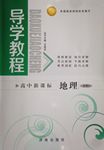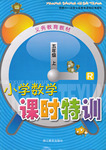题目内容
【题目】完形填空
I wrote my first novel when I was 22. It was a 1 . I didn’t know how to properly format dialogue or 2 a plot. Those were all 3 I planned to work out later. I gave the book to my father to read, and within a day he left me a voice mail saying that it was 4 and that I was going to sell it for $300,000.
5 , and rather quickly, the book was 6 by every publisher in New York. If there were a literary prize for Most Rejections, I would have won it. I was 7 , of course, but I knew better than to 8 — writing wasn’t an easy job, and if this book wasn’t my 9 in, maybe the next one would be. I got back to work.
But this scenario(剧情) happened again: I wrote books…and then they wouldn’t 10 . Still, my father’s faith in me never wavered(摇摆), even 11 I worked a host of other jobs. Some of the jobs, like being a bookseller, were great and 12 to my writing life. Some, like selling overpriced jeans to 12-year-olds, were only good insofar as they were material for future 13 . And they were — because it finally 14 . I sold a book! I was going to make it big!
I completely agree with motivational speaker and author John Maxwell’s words: “Successful and unsuccessful people do not 15 greatly in their abilities but in their 16 to reach/span> their potential.” Life’s not 17 . It never was, it isn’t now, it won’t ever be. But do not fall into the entitlement trap of feeling you are a 18 , you are not. Get over it and 19 with it. And yes, most things are more 20 when you break a sweat to get them.
【1】A. mess B. mix C. confusion D. puzzle
【2】A. follow B. structure C. discover D. hatch
【3】A. facts B. messages C. meanings D. details
【4】A. practical B. complex C. wonderful D. dissatisfactory
【5】A. But B. Instead C. Therefore D. Regardless
【6】A. rejected B. accepted C. abused D. commented
【7】A. depressed B. surprised C. frightened D. embarrassed
【8】A. continue B. fight C. withdraw D. write
【9】A. card B. ticket C. pen D. bill
【10】A. write B. buy C. work D. sell
【11】A. if B. because C. as D. since
【12】A. turned B. opened C. led D. contributed
【13】A. lives B. decisions C. stories D. jobs
【14】A. happened B. failed C. made D. passed
【15】A. vary B. change C. match D. diversify
【16】A. request B. demand C. hope D. desire
【17】A. sad B. happy C. hard D. easy
【18】A. witness B. victim C. owner D. winner
【19】A. get round B. get on C. get about D. get by
【20】A. challenging B. demanding C. rewarding D. paying
【答案】
【1】A
【2】B
【3】D
【4】C
【5】B
【6】A
【7】A
【8】B
【9】B
【10】D
【11】C
【12】D
【13】C
【14】A
【15】A
【16】D
【17】D
【18】B
【19】B
【20】C
【解析】
【语篇解读】本文是一篇夹叙夹议文。通过叙述自己写书售书的过程,作者体会到任何事情的成功都不是那么容易的,需要人们的付出,因为只要你付出了,就会得到回报的。
【1】考查名词。根据后文“I didn’t know how to properly format dialogue or structure a plot. ”可知此处为那是我的写作时混乱的,故选A。
【2】考查动词。句意:我不知道如何组织语言和设定场景,故选B。
【3】考查名词。句意:这是后来我计划解决的所有细节,故选D。
【4】考查形容词。句意:我给父亲一本书让他阅读,几天之后他留言给我说书很好,故选C。
【5】考查副词。根据后文“the book was rejected by every publisher in New York. ”可知与前面父亲认为的形成对比,故选B。
【6】考查动词。句意:相反的,而且很快的,这本书被纽约的很多家出版商拒绝,故选A。
【7】考查形容词。根据前文“If there were a literary prize for Most Rejections, I would have won it. ”可知此处作者感到很沮丧,故选A。
【8】考查动词。句意:但是比起退回我知道写作不是意见容易的事那是较好的,故选C。
【9】考查名词。句意:如果这本书不是我入门的票的话,那么下一本将会是的,故选B。
【10】考查动词。根据前文“But this scenario(剧情) happened again:”说明作者的另外一本书又没有卖出,故选D。
【11】考查连词。句意:甚至当我从事其他工作的一个主持人,比如书商也是很好的,故选C。
【12】考查形容词。句意:那样也对我的写作生涯有贡献,故选D。
【13】考查名词。句意:因为他们是未来故事的素材,故选C。
【14】考查动词。句意:事情终于发生了,我卖出了一本书,故选A。
【15】考查动词。句意:成功和不成功的人的区别不在于他们的能力而在于他们挖掘潜能的欲望,故选A。
【16】考查名词。句意:而在于他们挖掘潜能的欲望,故选D。
【17】考查形容词。句意:人生不是容易的与后文“It never was, it isn’t now, it won’t ever be. ”形成并列,故选D。
【18】考查名词。句意:但是不要陷入这样的一种自认为是受害者的圈中,故选B。
【19】考查动词短语。句意:克服掉它然后与它相处,故选B。
【20】考查形容词。句意:当你付出的时候,大部分的事情都是值得做的,故选C。

 导学教程高中新课标系列答案
导学教程高中新课标系列答案 小学课时特训系列答案
小学课时特训系列答案【题目】阅读理解
阅读下列短文,从每题所给的四个选项(A、B、C和D)中,选出最佳选项
Come and join us to celebrate his birthday.
Picture Drawing Let’s decorate Wally’s home together— School students under 12 are invited to draw pictures of Wally Time: 12:30p.m.—2:30p.m. Place: Children’s Park |
Grandpa Lin’s Story Time Where is Wally from? What is Wally’s favorite food? Is Wally married? … … … Want to know more about Wally? Let Grandpa Lin tell you!! The Little Theatre 10:30a.m.---11:30 |
The Birthday Party Wally will be happy to see you at his birthday party from 3:00p.m. to 5:00 p.m. at Children’s Park. Come and enjoy cakes, drinks, and music, and take pictures with Wally. Special presents for people who were born on Nov.14 |
Best Wishes to Wally Write down your best wishes for Wally. wally@formosazoo.com.tw |
【1】Llama is a(n) _____.
A. zoo B. boy C. animal D. child
【2】Who can be invited to draw a picture of Wally?
A. Susan, a college student who studies art.
B. Tony, a father who loves drawing animals.
C. Tom, a high school student who loves drawing.
D. Linda, a primary school student who loves drawing.
【3】How long will Wally’s birthday party last?
A. Thirty minutes. B. Two hours. C. Three hours. D. Four hours.
【4】Mary wants to learn about Wally’s life and history. Which activity should she join?
A. Grandpa Lin’s Story Time B. Picture Drawing
C. The Birthday Party D. Best Wishes to Wally